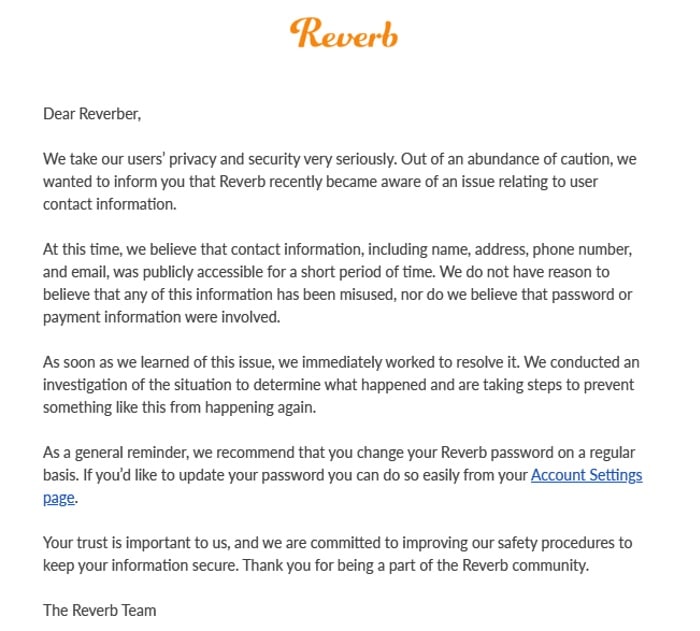
The online musical instrument marketplace Reverb has suffered a data breach which has exposed the personal details of 5.6 million users.
Security researcher Bob Diachenko, who has a long track record of uncovering databases left unsecured on the internet, came across an unsecured Elasticsearch server earlier this month which allowed anyone to access information about millions of Reverb’s users – no password required.
Details exposed in the database included:
- Users’ full names
- Users’ email addresses
- Users’ phone numbers
- Users’ mailing addresses
- Users’ PayPal details
- Information about users’ listings and orders
According to Diachenko, the exposed data included information about high profile rock musicians such as Bill Ward of Black Sabbath, Jimmy Chamberlin of the Smashing Pumpkins, Alessandro Cortini of Nine Inch Nails.
Affected users have been informed about the security breach in an email from the company:

Disappointingly, Reverb’s email does not underline the very real risk that scammers could use the exposed information to send out scam emails and phishing attacks to customers’ inboxes. It’s even possible that a scammer could use the breached details in an attempt to gather more personal information, and defraud a customer over the telephone.
Reverb says that it does not believe that passwords or payment details have been compromised, but does suggest that users change their passwords.
Actually it says “we recommend that you change your Reverb password on a regular basis.” That’s advice with which I actually have a certain level of discomfort. As I’ve written elsewhere
Enforcing regular password changes can often lead to folks choosing weaker passwords rather than strengthening their security.
When there are good reasons to change your passwords (such as a data breach), you should definitely do it.
So, I guess in Reverb’s case, as their lax behaviour appears to have caused a privacy breach (although seemingly not one related to login credentials) it may well be right to be cautious and change your password. But please make sure it is a strong password, that’s hard to crack, and not one that you are using anywhere else on the internet.